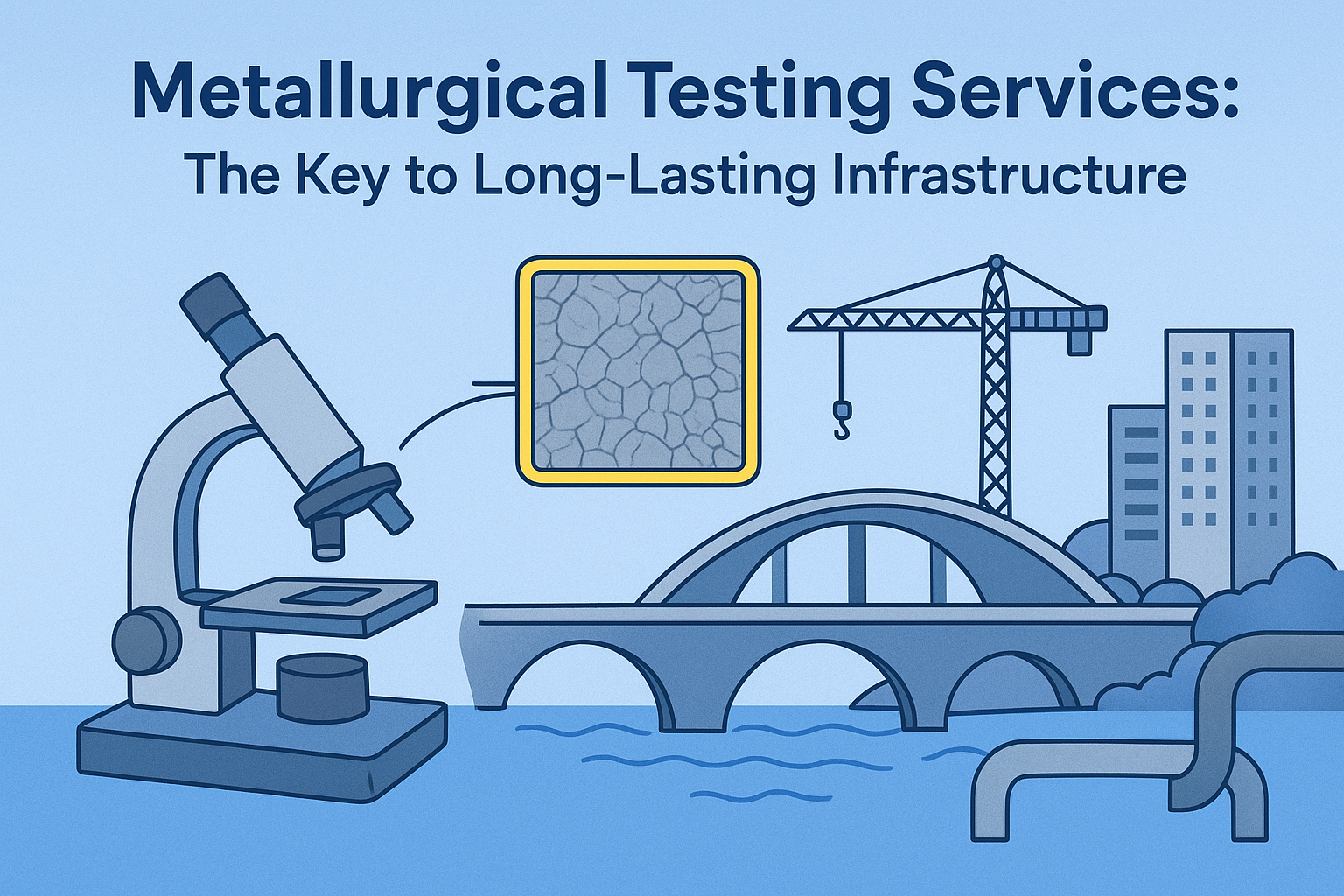Metallurgical Testing Services: The Key to Long-Lasting Infrastructure

In today’s fast-paced industrial world, infrastructure plays a big role in the growth of economies and life. It can be bridges, highways, pipelines, or skyscrapers, but all structures should be built to last. Metallurgical testing services play an important role in ensuring durability and reliability. Through testing of metals and alloys utilized in construction, these services guarantee decades of safety, strength, and compliance of the infrastructure development.
What do you mean by Metallurgical Testing Services?
Metallurgical testing services refer to scientific examination of alloys and metals to find out their structure, mechanical properties and integrity. Defects, weaknesses or variations in materials are also identified using these tests before their use in large projects. Typical metallurgical tests are:
- Chemical analysis - Elemental composition.
- Mechanical testing - Strength, hardness, toughness, fatigue resistance.
- Failure analysis - Investigating metal failure in service.
- Microstructural analysis - Analysis of the structure of the grain and defects under consideration with the help of microscopes.
This type of testing makes materials meet international standards and this enhances safety and performance.
The importance of Metallurgical Testing in Infrastructure.
Infrastructure projects are always under stress from load, weather and environmental factors. In the absence of metallurgical testing, even small material defects may cause early failures, expensive repairs or accidents.
Metallurgical testing has the following advantages in infrastructure:
- Durability- Metals that can resist wear, corrosion and pressure with time.
- Safety - Prevents the structural failures that may endanger lives.
- Compliance - Adheres to national and international standards of construction.
- Cost Savings - Saves costs on downtime and maintenance cost on quality material.
- Sustainability - Promotes the application of metals that are dependable, recyclable and friendly to the environment.
Industries that use Metallurgical Testing Services
Metallurgical testing services are used in various industries that help in infrastructure development:
- Construction and Civil Engineering - Tunnels, skyscrapers, railways and bridges.
- Oil and Gas - Pipelines, oil refineries and offshore plants.
- Automotive/ Aerospace - Safe and light materials.
- Energy and Power - Nuclear plants, transmission lines and turbines.
- Defense & Marine - Military equipment and shipbuilding.
High Tech Metallurgical Testing
In modern laboratories, the high-tech techniques of scanning electron microscopy (SEM), X-ray diffraction (XRD), and spectroscopy are applied in modern laboratories to obtain accurate results. These technologies are capable of assisting the engineers and manufacturers in making decisions on the type of material and performance data.
Selecting the correct Metallurgical Testing Partner
Not all testing facilities are the same. When choosing a metallurgical testing service provider, consider:
- Accreditation and certifications ( ISO, ASTM, NADCAP ).
- Range of testing procedures offered.
- Industry experience and technical knowledge.
- Fast turnaround.
- Compliance to local and international standards.
Conclusion
Metallurgical testing is not only a technical process but the basis of the long-term infrastructure. By using metallurgical testing services, industries develop safer structures, which are stronger and more sustainable, as their metals are of the best quality. To governments, businesses and engineers, the investment in metallurgical testing is the key to saving lives, saving money and having infrastructure that will last.
